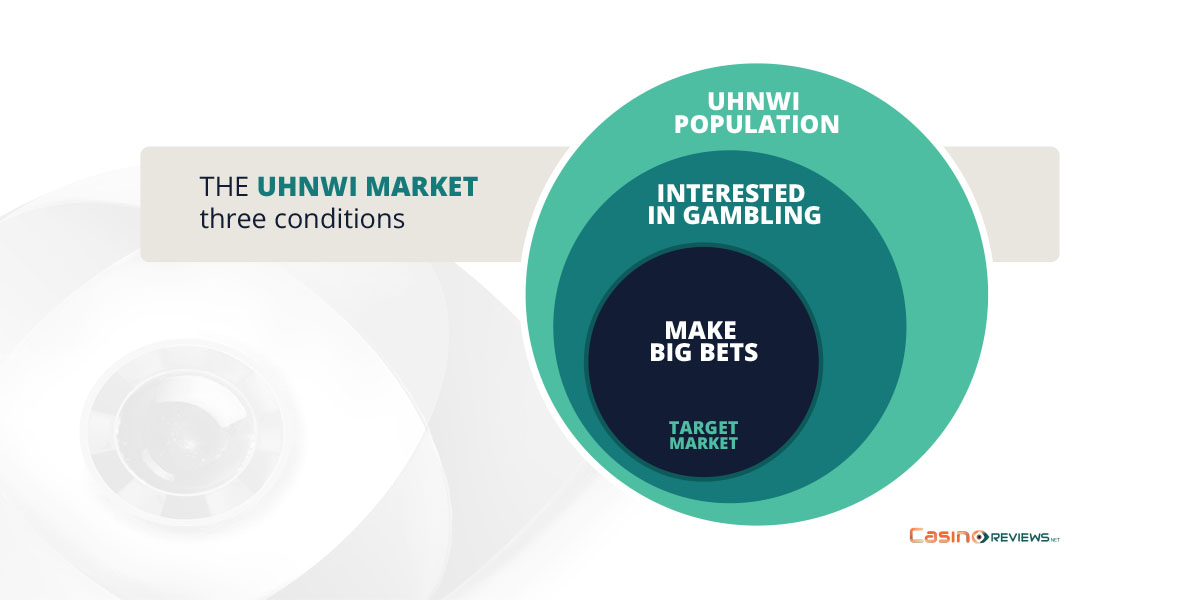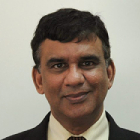How to Market Casino Service to Ultra High Net Worth Individuals?

Casino companies offer all kinds of incentives to attract and retain high rollers, some of whom are ultra-high-net-worth-individuals (UHNWIs). Marketing to this select group is not easy. This group of individuals is geographically scattered and comes from different cultures. A highly customized approach is needed for this group to develop brand awareness and loyalty toward a particular casino brand.
Introduction
Every major casino bends over backwards to attract and retain high rollers. Many high rollers tend to be UHNWIs with deep pockets and a big appetite for gambling. How do you go about persuading UHNWIs to visit your casino or online casino? How do you approach this elusive segment of customers? What are some of the appeals that work effectively when targeting them? Is digital marketing a suitable medium to reach this group? These are some of the questions we shall seek to answer in this article.
HNWIs, UHNWIs, Billionaires, High Rollers, and Whales
The most common definition of a high-net-worth individual (HNWI) is someone who has a million dollars or more in liquid assets. An ultra-high-net worth-individual (UHNWI), according to the Credit Suisse Research Institute, is someone who has assets of $50 million or morei. Billionaires, as the name suggests, have total assets worth more than $1 billion. While billionaires have traditionally originated from the U.S. and Western Europe, in recent years, individuals from China, India, the Middle East, Russia, and other countries have joined the ranks of the world’s super-rich (see Table 1).
Table 1: Top Ten Countries with Most Billionairesii
While high net-worth and ultra-high-net-worth individuals are somewhat easy to define, defining a high roller is not as easy. High rollers typically make big bets, but what constitutes “big” is somewhat relative. According to Denis Malinka, “…many of Las Vegas’ gambling establishments allow players to play at the high roller tables only with $150,000+ bankroll. At the same time, numerous Canadian online casinos believe that even gamblers who make $1,000 deposits regularly have a high roller status.”
A “whale” is a designation given to the world’s biggest gamblers. According to Robert Shook, “They [the whales] are so identified because a whale is the biggest fish in the ocean. Actually, a whale is not a fish but a mammal, but the analogy is a picturesque way to describe these big-time gamblers.
There are an estimated 200 whales in the entire world, and their gambling credit lines run into seven and eight figures.”iii
If a worker was given $1,000 every day, it would take 2,740 years to save $1 billion. To make the equivalent of what larry page, for example, added to his fortune in 2021 alone ($47 billion), it would take 128,768 years, or 1,694 lifetimes. These calculations are assuming the worker did not spend a cent of the $1,000 each day.
It is important to understand that not all high rollers are UHNWIs, and not all super rich are high rollers. There are a lot of ample stories of not-so-rich individuals borrowing money from their friends and relatives and then (mostly) losing big at high limit tables. Conversely, even someone as rich as Bill Gates is not a rated player in Las Vegas casinos. Rumor has it that he plays $3 to $6 Hold ‘em poker. When gaming establishments target the super-rich, they first need to qualify whether the target fits the profile of a high roller, if not a whale.
The casino establishment needs to be clear who its target is. The UHNWI market would comprise of individuals who meet the following three conditions: (a) They have a net worth of $50 million or more; (b) They are interested in gambling; and (c) They make large bets at the gambling tables or online. This segment is depicted in Figure 1.

Figure 1: Target Market for Casino HNWIs
Deke Castleman provides a colorful description of this target market. He writes, “…from the pygmy to the blue, all casino whales have two things in common: a boundless bankroll and the gambling gene. The former imparts the capacity to risk $1,000 and upper hand. The latter consists of specialized chromosomes that govern the production of testosterone and adrenaline, oversee the acquisition and disposition of an excess of capital, and manage the pursuit of the unknown.”iv
Marketing to the Affluent
It is fairly common knowledge that an entirely different marketing approach is necessary when dealing with ultra-high-net-worth individuals as opposed to all other consumers in the world. Typical inducements such as a free room or a dinner voucher will have little impact on the decision-making of the super-rich. Also, conventional channels of communication may miss the mark entirely when reaching this elite group.
Successfully targeting this group requires painstaking research and a creative marketing strategy. Here, in no particular order, are some pointers that will help in marketing casino products to the very affluent.
Identify Your Target Audience
The first step in marketing to UHNWIs is to create a buyer persona. The persona (also called marketing persona) is a research-based description of your ideal customers. Personas are fictional and generalized representations that describe the types of customers that will find value in your product.
Typical information contained in the buyer persona would comprise of:
- Buyers’ demographic characteristics (age, income, occupation)
- Psychographic profile (activities, interests, lifestyle, and personality)
- What do they read?
- Who do they listen to?
- Where do they shop?
- Where do they eat?
- What do they do in their spare time?
- What are they seeking by way of a fulfilled life?
Casinos desirous of attracting UHNWIs should conduct exploratory rather than confirmatory research to understand what truly matters to their customers. For example, instead of conducting surveys, they should have conversations. To do this, they should use trained researchers. Techniques such as soft laddering could be used to generate consumer insights. Soft laddering involves “conventional, semi-structured interviews, where the natural flow of speech of the respondent is restricted as little as possible.”v
Not All UHNWIs Are the Same
It would be a huge mistake to operate with the presumption that the world’s super-rich are a homogenous group of prospects. These individuals have very diverse interests, desires, and preferences. For one, they come from a plethora of occupations, including high-level corporate executives, business owners, entrepreneurs, investors, doctors, lawyers, accountants, entertainers, athletes, and some form of celebrities.
The country of origin and language spoken by UHNWIs also varies. Bulk of the UHNWIs—over 70,000—come from the U.S., followed by China, India, Germany, and the United Kingdom. The age distribution of UHNWIs also exhibits significant dispersion. 73 percent of UHNWIs are under 50 years of age, 17 percent and between 50 and 65 years of age, and around 10 percent are over 65 years of age.
The diversity in language, lifestyle, age, and occupation dictates that UHNWIs are represented by not one but several separate personas. The more granular the persona, the greater its utility in designing a focused marketing strategy. The super-rich consider themselves to be above everyone else in stature and capabilities. They value and treasure their individuality. Using the same broad-brush stroke by which to paint them would be a serious blunder.
Online Marketing Efforts Do Pay Off
High net worth people tend to have a high level of digital literacy. 85% of HNWIs and UHNWIs use more than three digital devices, and 98 percent access the Internet or apps daily. The challenge for casinos is to offer interesting content on platforms that UHNWIs often visit.
Online marketing efforts should include specialized SEO landing pages and carefully planned online advertising campaigns. Engaging social media posts directly addressing the desires and aspirations of the targeted persona would help create desired brand affinity.
Well-written and expertly curated blog posts that truly speak to the elite target audience become effective means of brand exposure and soft sell. Extensively researched, in-depth articles addressing topics of interest to the buyer persona are a great way to build brand awareness and tell an interesting story about your brand.
UHNWIs speak many different languages, and casinos should consider where their targeted personas reside and the language they are most comfortable with. Marketers would benefit from having their content being written in a few different languages. HNWIs and UHNWIs are regular consumers of social media platforms, with 99% visiting social media platforms and spending close to an hour and a half each day on them. Social media, when correctly managed, offer fecund opportunities to communicate with UHNWIs in a personal and informal manner.
Carefully targeted ads on social media groups and other platforms frequented by UHNWIs should provide marketers with a good return on their digital investment. Social media strategies should enlist powerful influencers and offer premium content of interest to UHNWIs that they are unlikely to find on other media. There is some evidence to suggest that UHNWIS are more likely to use mobile search than desktop search. Businesses desirous of targeting this group should make sure that all digital strategies incorporate sites that are optimized for mobile users.
The Role of Event Marketing
It is highly unlikely that UHNWIs will be influenced by direct mail or advertisements alone to drive them toward product purchase. Sure, advertising in the media they frequent will help create brand awareness and even solidify the advertiser’s brand image in the minds of targeted customers. However, even well-targeted and carefully designed ads will not inspire that all important first visit to the casino property. This is where event marketing comes in.
Event marketing has become an important tool to convert prospects into customers. Casinos should identify special events that they can sponsor or participate in so that they can build up brand awareness and create healthy associations with their brand.
The events a casino company participates in need to have unique and distinctive venues, a fascinating guest list, and the right sponsors. The intent of event marketing is to move the targeted attendees beyond brand awareness to cultivating a desire for a trial visit and subsequent brand loyalty.
Experiences, Not Things
All over the world, people are moving away from things and toward experiences to add meaning to their life. The super-rich are no different.
UHNWIs will not be attracted to a casino brand by the lure of material goods. Chances are, they already own their fair share of Rolex, Patek Philippe, and Cartier watches (unless, of course, you are Bill Gates, who wears a ten-dollar watch). Lamborghini, Bugatti, and Rolls-Royce are all brands they are accustomed to. What will attract the super-rich to an event or to a casino property are rare and exclusive experiences that offer sensory richness, novelty, and some degree of suspense.
Effective experiences that will positively influence UNHWIs fall into two broad categories: authenticating acts and authoritative performancesvi. Authenticating acts involve an expression of one’s true self and individual existence. They are distinct from the roles people play or the masks they wear in relating to others. Such experiences induce flow, individuation, and peak experience.
Authoritative performances, on the other hand, are cultural displays like festivals and rituals that make explicit what the membership of the community of participants regard as significant life moments. Authoritative performances reflect a “primitive” quest for unity between self and society. Most UHNWIs operate in a rarified world, a world that is, for the most part, divorced from the day-to-day lives of humanity. Authoritative performances help re-create that much needed connection between self and society that is missing in the lives of most UHNWIs. Authoritative performances serve to reinforce one’s sense of integration, membership, and community.
Secrecy and Confidentiality Are at a Premium
Interactions with UNHWIs need to be carried out with total assurance of secrecy and confidentiality. In conducting business with a casino, the super-rich will often establish a line of credit. The credit line, which may run into seven or eight figures, will astound most common folks. What UNHWIs expect from a casino is that their financial dealings be kept secret from prying eyes and perked-up ears.
The same applies to the movements of UHNWIs. Many members belonging to the super-rich class will expect that a casino will go the extra mile in keeping their movements a secret. Private elevators, separate VIP entrances, and total discretion on the part of all contact employees is expected. Lunch-break gossip between croupiers and pit bosses about how Mr. X bets, how much he won, how much he lost, and how much he tipped should be off-limits.
Word-of-Mouth as the Best Promotional Tool
Not unlike customers in other segments, UHNWIs care about what their friends and trusted advisors have to say about different brands. Compared to customers in other segments, this group of affluent consumers displays a stronger distrust toward marketers and marketing campaigns. To combat the skepticism of UHNWIs, casino marketers need to consciously reach out to relevant influencers who are in a position to persuade new customers to give their brand a try. UHNWIs are fairly receptive to feedback received from others in their target group. Therefore, social events, where existing super-rich clients can chat and mingle with new prospects, are the most effective way to build rapport with prospective customers.
When UHNWIs visit a casino, they are risking more than their money. They have to worry about their privacy and the confidentiality of their dealings. They want to be certain that their visit does not become ready material for tabloid headlines. They want to ensure that a visit to the casino does not become a catalyst for them being embroiled in money laundering and terrorism financing investigations. Positive recommendations from a customer’s trusted friends, therefore, provides that “Midas touch” to close the deal.
Conclusion
Ultra-High-Net-Worth individuals have the potential to add significant value to a casino’s top as well as bottom line. However, persuading this group of customers to play at your property is not easy. Marketing to UHNWIs needs to be carried out with flair, creativity, distinctiveness, and subtlety. Digital channels and social media are viable means of communication with UHNWIs, but the appeals used in communication need to be subtle, and the tone should be refined. Events offering authentic and immersive experiences are a promising way to attract UHNWIs and reinforce their loyalty. Secrecy, privacy, and confidentiality should be the hallmarks of all dealings with UHNWIs.
i Most other sources define a UHNWI as someone with nets assets of $30 million or more.
ii Adamczyk, Alicia (2019), “The US is home to more billionaires than China, Germany and Russia combined,” May 9, www.cnbc.com.
iii Shook, Rober L. (2003). Jackpot: Harrah’s Winning Secrets for Customer Loyalty. Hoboken, NJ: John Wiley & Sons.
iv Castleman, Deke (2004). Whale Hunt In the Desert. Las Vegas, NV: Huntington Press.
v Caragioli, Filippo (2022), “What Matters Most to the UHNWI: Mapping The Yacht Owner’s Client Journey,” www.forbes.com.
vi Eric Arnould and Linda Price (2000), “Authenticating Acts and Authoritative Performances.: In The Why of Consumption, S. Ratneshwar, David Mick, and Cynthia Huffman, eds. New York: Routledge.





Review this Blog
Leave a Comment
User Comments
comments for How to Market Casino Service to Ultra High Net Worth Individuals?